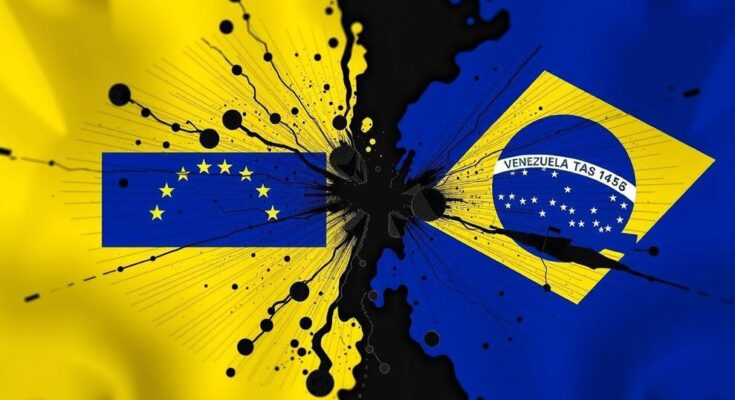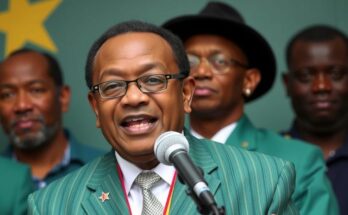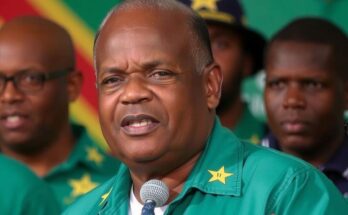Relations between Venezuela and Brazil have worsened after Nicolás Maduro’s exclusion from BRICS, with Maduro’s allies criticizing Brazilian officials. Venezuela has initiated a diplomatic response by recalling its ambassador and attacking Brazil’s involvement. The situation sheds light on issues regarding electoral legitimacy and international representation.
Relations between Venezuela and Brazil have significantly soured following Nicolás Maduro’s failure to secure a spot in the BRICS bloc, which was largely attributed to Brazil’s opposition. A prominent ally of Maduro harshly criticized a key aide of Brazilian President Luiz Inacio Lula da Silva, accusing him of advancing American interests and suggesting he would be declared unwelcome in Venezuela. Subsequently, the Venezuelan foreign ministry took steps to recall its ambassador from Brazil and summoned Brazil’s deputy ambassador for official reprimand. President Lula’s absence from the recent Kazan summit in Russia due to a head injury meant he did not make any public statements regarding these developments. However, his chief foreign policy advisor, Celso Amorim, articulated during a congressional session that Brazil had reservations about Venezuela’s regional reputation following a disputed presidential election in July. Consequently, he indicated that Venezuela did not meet the criteria for potential BRICS expansion, which includes possessing international influence and good representation of their regions. Maduro, who claimed victory in the aforementioned election, attended the summit in the hope of joining BRICS alongside other Latin American nations but expressed outrage upon learning of Brazil’s veto. He characterized the situation as a betrayal and asserted, “No one shuts Venezuela up or vetoes it,” emphasizing his expectations for President Lula to remain informed and offer pertinent commentary on the matter. Contrarily, Amorim characterized Venezuela’s response as “totally disproportionate,” though he refrained from further comments on the issue the following day. His remarks follow Brazil’s more critical stance towards Maduro, particularly concerning the latter’s repression of dissent, a shift from previous mediation attempts made by Lula along with Colombian President Gustavo Petro after the July electoral fallout.
The tensions between Venezuela and Brazil stem from a failed attempt by Venezuelan President Nicolás Maduro to join the BRICS group, a coalition of emerging economies which includes major nations like Russia, India, and China. Brazil’s opposition played a pivotal role in this rejection, attributed partly to concerns regarding Maduro’s legitimacy following contentious elections. The relationship’s decline is underscored by escalating criticisms from Venezuelan officials directed at Brazilian counterparts, revealing broader issues of regional dynamics and political legitimacy.
In summary, the breakdown of relations between Venezuela and Brazil following Maduro’s exclusion from BRICS highlights the turbulent political landscape in Latin America. It reflects underlying tensions regarding electoral legitimacy, foreign influence, and the criteria for international cooperation among emerging economies. Both nations appear entrenched in their respective positions, with little immediate resolution in sight, as Venezuela continues to assert its significance in the face of regional criticism.
Original Source: www.livemint.com




